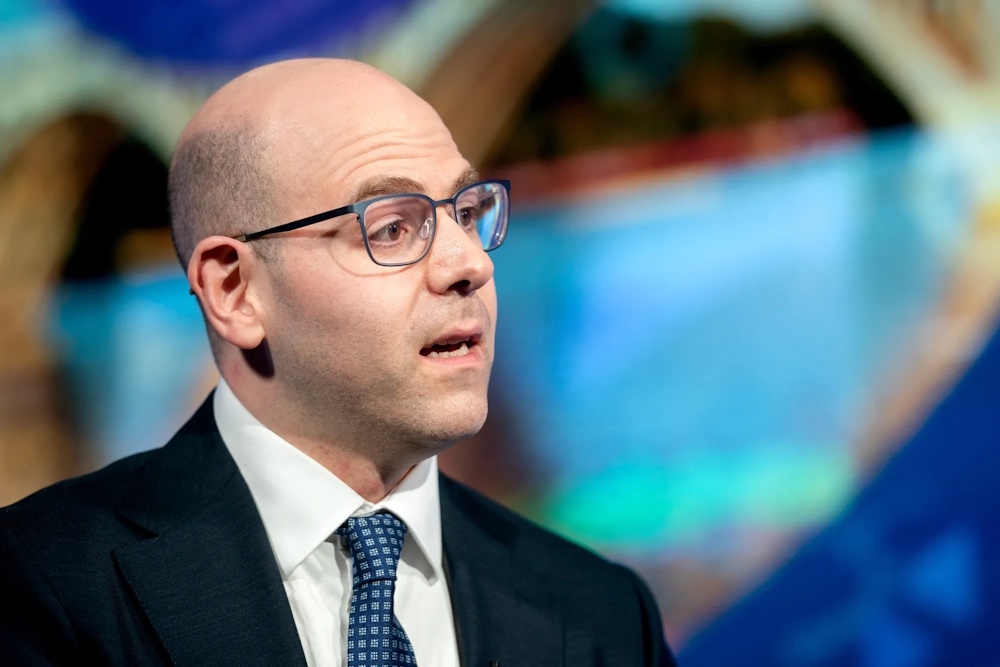
The latest addition to the Federal Reserve’s policymaking team brings a distinctive viewpoint on the US economy that is encountering challenges in gaining acceptance. In September, President Donald Trump appointed Stephen Miran, a prominent economic adviser, to temporarily occupy a vacant position on the Federal Reserve’s influential Board of Governors. To date, Miran has engaged in two Federal Reserve meetings, consistently diverging from the prevailing consensus among the majority of Fed officials on both occasions. During the central bank’s October policy meeting, Miran expressed dissent regarding the decision made by Fed officials to reduce interest rates by a quarter point, advocating for a more substantial half-point cut, mirroring his stance from September. He has promptly made a notable first impression in various other respects as well. In his inaugural month as a central banker, Miran addressed the US economy at over a dozen events and media interviews. Federal Reserve officials generally undertake only a limited number of public engagements during their initial month in office.
Miran has consistently advocated for substantial reductions in interest rates, similar to Trump’s stance. He has contended that borrowing costs are placing greater strain on the economy than many realize and that there is “substantial disinflation” on the horizon — perspectives Miran describes as “out of consensus.” He reaffirmed his position during a Wednesday interview. There is a lack of consensus regarding Miran’s perspectives on economic matters. “I certainly wouldn’t characterize anything that he’s saying as ridiculous,” stated David Seif during an interview. “The discussion centers around the inputs incorporated into his economic modeling, which are subject to controversy. I believe that only time will reveal whether he is ultimately correct,” Seif stated. “There’s no ‘material inflation from tariffs,’” states newly appointed central banker Stephen Miran.
Miran’s justification for substantial rate reductions primarily hinges on his assessment of Trump’s expansive economic strategies and his anticipation that Trump’s tariffs will not ignite inflationary pressures. In his inaugural address following his swearing-in as a Fed governor, Miran articulated how the policies of Trump might be influencing a decline in the “neutral rate of interest,” a conceptual benchmark for borrowing costs that neither invigorates nor constrains the US economy. Miran specifically highlighted the administration’s assertive measures regarding immigration, the president’s hallmark tax and spending legislation enacted by Congress earlier this year, and Trump’s extensive tariffs. Miran posits that the Federal Reserve has significant ground to cover in order to realign interest rates with a more neutral stance, emphasizing that prompt action is crucial. “If you maintain such a tight policy for an extended duration, you risk the possibility that the monetary policy itself is triggering a recession,” he stated in an interview, published on November 1. “There appears to be no justification for assuming that risk if inflationary pressures on the upside are not a concern for me.” Furthermore, Miran has indicated that the current wave of mass deportations is expected to alleviate some of the strain on the housing market, which may lead to a decrease in rates and contribute to “substantial disinflation.” He has consistently minimized the possible effects of tariffs on consumer prices.
Miran continues to be regarded as a serious economist; however, his ideas have encountered some resistance. Last month, former Treasury Secretary Larry Summers expressed criticism regarding Miran’s inaugural address as a Federal Reserve governor. “I cannot recall a speech of such analytical frailty delivered at the New York Economic Club or by a Federal Reserve governor,” Summers remarked. “If this represents the most favorable scenario for the significant decrease in interest rates that President Trump has been promoting, then that scenario is even less robust than I had previously believed.” Some economists have expressed skepticism regarding Miran’s perspectives. Michael Feroli, “We find some of his arguments questionable, others incomplete and almost none persuasive.” Miran’s unique economic reasoning appears to have not resonated with his peers on the Fed’s rate-setting committee. Similar to other Trump appointees, including Fed governors Christopher Waller and Michelle Bowman, Miran concurs that a deteriorating labor market faces the peril of a significant downturn. However, neither Waller nor Bowman has supported a half-point rate cut, nor have they indicated that the neutral rate is below common perceptions. In her inaugural address following Trump’s assertion of her dismissal, Fed Governor Lisa Cook was queried last week regarding her perspective on the relationship between reduced immigration and housing inflation, a fundamental aspect of Miran’s economic framework. She discreetly dismissed that premise, asserting “when I’m thinking about immigration, I’m typically thinking about the labor market. I believe that this represents the primary function I perceive in immigration policy,” she stated.

